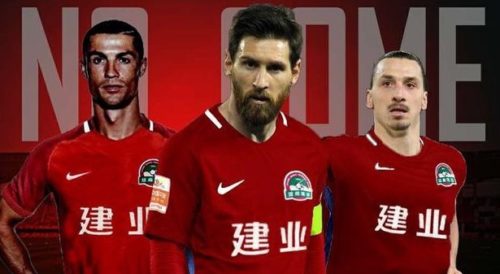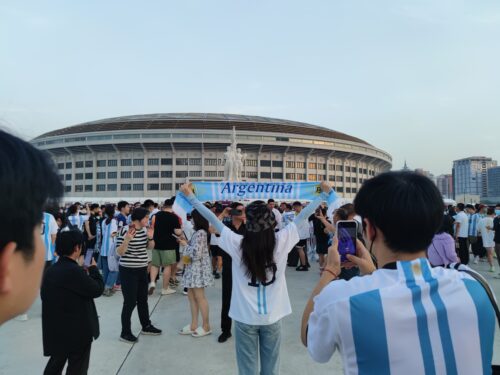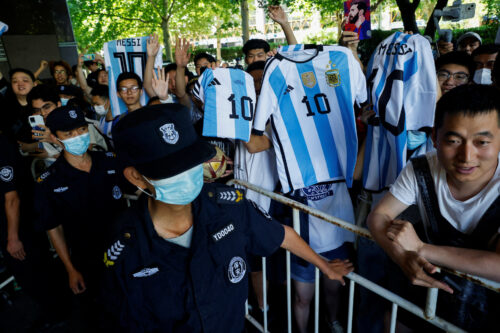Could Messi actually sign with a Chinese club?
Aside from a high salary, the Chinese Super League has very little to offer to Lionel Messi. Still, fans can dream.

Recent drama between Lionel Messi and FC Barcelona has made the Argentinian star the hottest commodity on the transfer market. While Manchester City is the frontrunner to land the six-time Ballons d’Or winner, many sports books have given him 25-to-1 odds to land on “any Chinese club” — about the same odds for Juventus.
Even after the Gareth Bale debacle last summer — when the Welsh star was confirmed to move to China, only for Real Madrid to call it off at the 25th hour — Chinese clubs still angle for splashy transfer-window moves. But is Messi actually feasible?
When it comes to money, probably. Although it’s harder now than in years past. The Chinese Football Association announced a very strict salary regulation for the 2020 season, though clubs seem to be figuring out a way around it. Shanghai SIPG’s signing of Mirahmetjan Muzepper in January, for instance, involved a 10 million yuan ($1.5 million) signing bonus to compensate for the player’s “reduced” salary. Clubs have often found ways to openly defy regulations using accounting loopholes. In 2018, the Association’s attempt to limit transfer fees became empty words within a year. This year, Chinese clubs have remained quiet during this transfer window, but it’s more likely due to the Chinese Super League’s late start.
Most CSL clubs are backed by some of China’s largest conglomerates with an almost endless supply of cash. The Big 4 in particular — Guangzhou Evergrande, Beijing Guo’an, Shandong Luneng, and Shanghai SIPG — are backed by some of the largest companies in the world, i.e., National Grid, Alibaba, and Evergrande. Moguls like Xǔ Jiāyìn 许家印, owner of Guangzhou Evergrande, would definitely not pass on the chance to make Messi the face of his real estate empire, because the cost of signing him could easily be covered by the revenue his popularity would generate for a company’s other subsidiaries. In fact, ex-Tianxin Quanjian owner Shù Yùhuī 束昱辉 (who is currently in prison for a pyramid scheme) had been on a high-profile crusade to bring Messi to Tianjin beginning in 2015, claiming he had laid aside a staggering 2.1 billion yuan in cash ($305 million, 2015 money) for that purpose.

But aside from a high salary, the CSL has very little to offer. Part of the reason that Messi wanted out of Barcelona is the club’s lack of competitiveness in the Champions League, so it would be counterintuitive if he wanted to leave Europe at the moment. While the memory of Barca’s 8-2 Champions League humiliation at the hands of Bayern Munich is still what anyone wants to talk about, Messi’s performance this past season shows he still may be, at age 33, the best in the world.
Perhaps Chinese clubs will have better luck pursuing Messi’s teammate, Luis Suarez, whose lackadaisical playing style indicates he no longer has a desire for titles (and doesn’t have the pressure of living up to the reputation of “the greatest player in soccer history”). Real Madrid’s James Rodriguez might be another viable option, given how valuable attacking midfielders are in the CSL. But Messi? We’d stay away from that bet, no matter the odds.

Chinese fans can dream:












